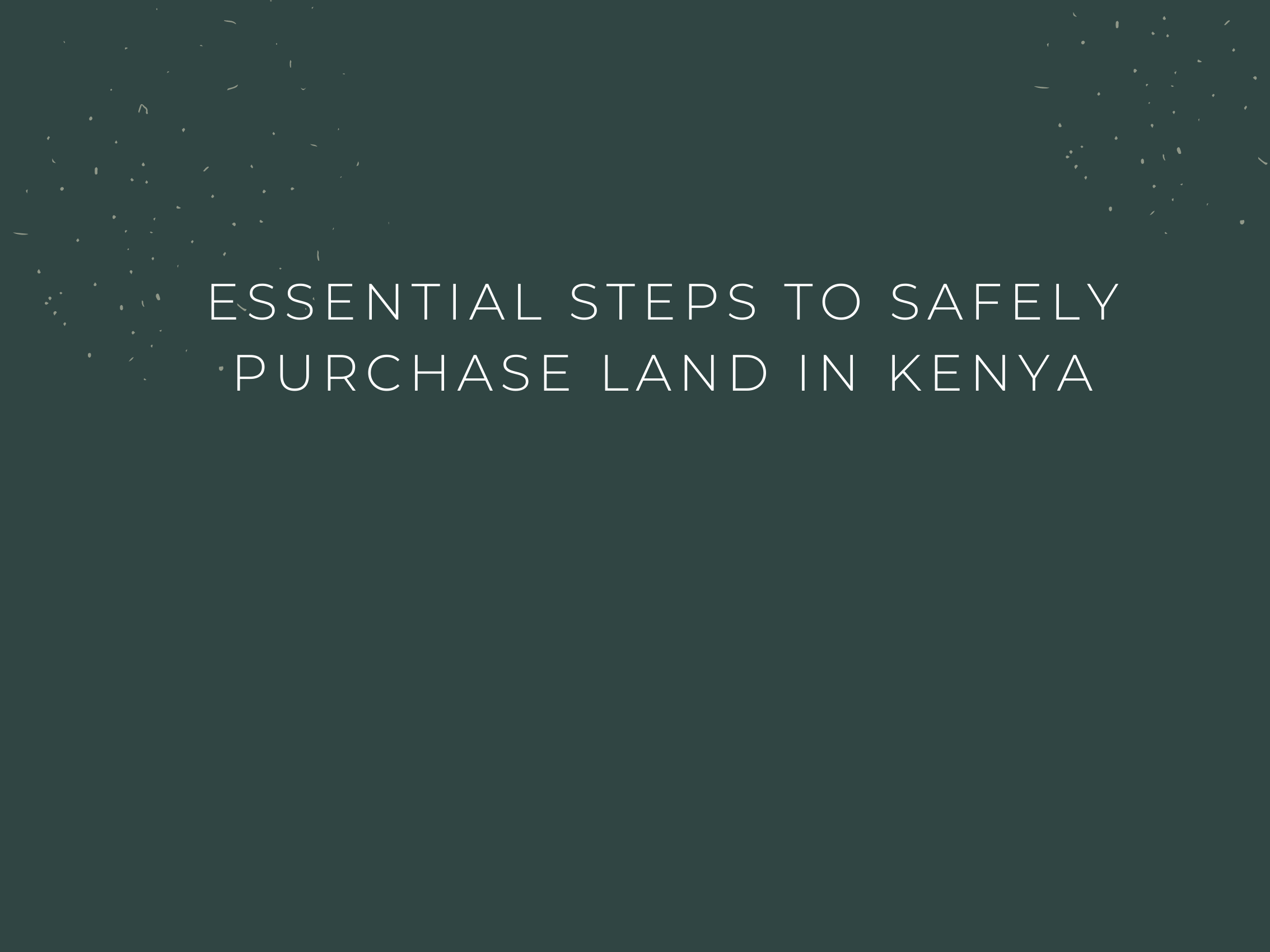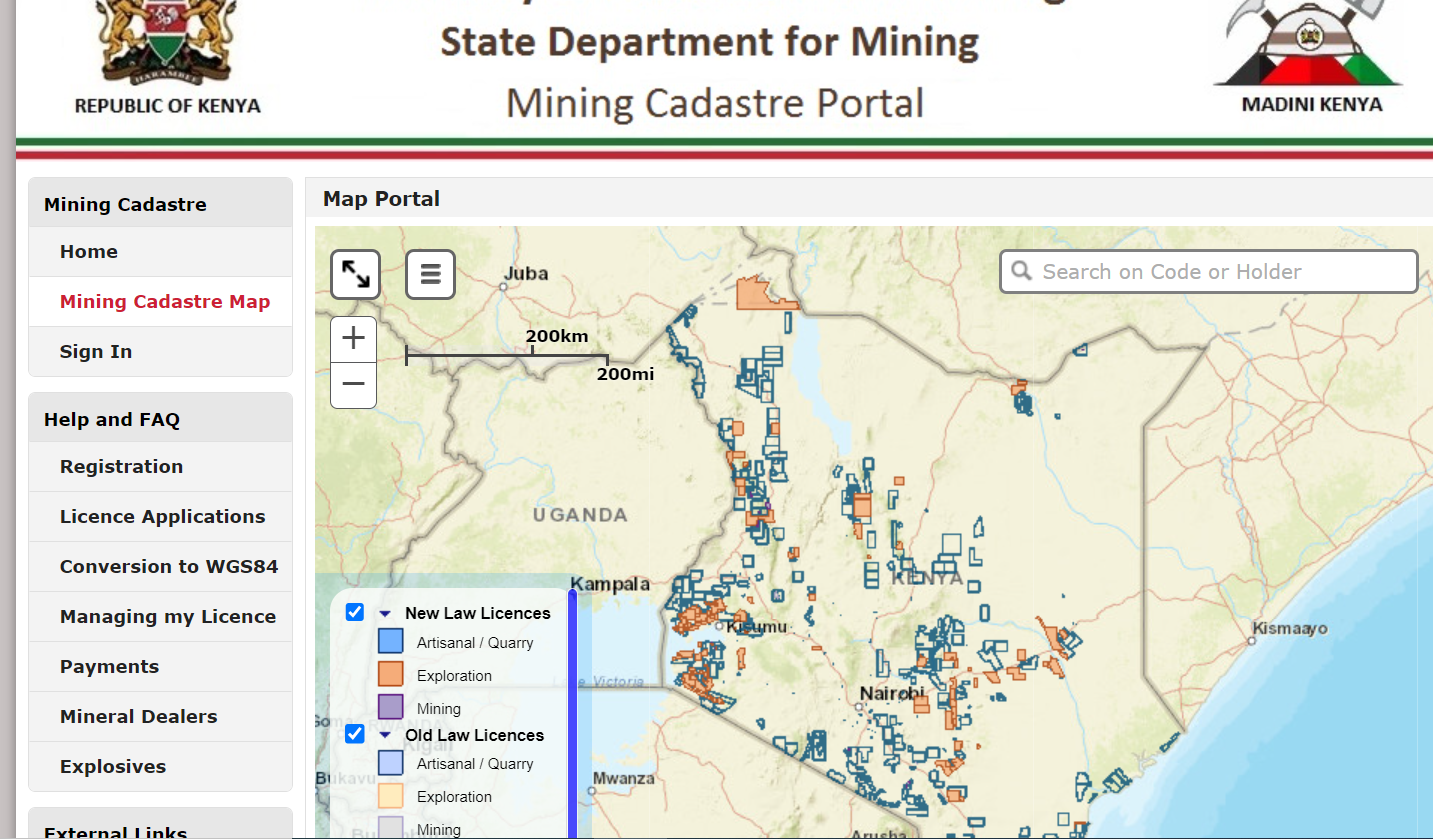
Do you want to buy land in Kenya? Have you been scammed or have heard horror stories of people who have lost their hard-earned money during the process of buying land? We explore steps to safely purchase land in Kenya.
Introduction
Buying land is a significant investment, and it’s crucial to exercise caution to avoid falling victim to scams. This informative blog post will guide you through the essential steps to follow when purchasing land from individuals or groups. By adhering to these steps, you can protect yourself from potential fraud and ensure a smooth and secure transaction.
1. Verify Ownership with the Ministry of Lands
Request to see the original title deed or a copy and perform a search at the Ministry of Lands to confirm the real owners and check for any caveats on the title. The search typically incurs a fee of Sh 520 but provides invaluable information regarding the land’s ownership status.
Ensure that the documents presented by the owner are legitimate. It is possible for some people to alter the Identification documents, change photos but retain the serial number.
2. Check for Unpaid Land Rates
Contact the local authorities to inquire about any outstanding land rates on the property. Unpaid land rates can prevent the transfer of ownership, so it’s important to resolve this matter before proceeding with the purchase.
3. Obtain Maps from the Ministry of Lands
Visit the Ministry of Lands and purchase two maps: one displaying the exact measurements of the land you intend to buy (mutation) and another showing neighbouring lands. These maps provide crucial visual references for verifying the land’s boundaries and should cost around Sh 350 each.
4. Verify Land Details on the Site
Accompanied by a surveyor or conducting the survey yourself, visit the land you plan to purchase. Using the maps obtained in the previous step, verify the details on the map and inspect all the beacons (boundary markers) to ensure they align with the documented boundaries.
It is critical to understand the history of the land, existing disputes and whether it is public land. Probe the neighbours and the area chief to understand if there are any family disputes on the land. It is not uncommon for land to have land that has a title obtained illegally.
Negotiate and Draft an Agreement
Sit down with the seller and negotiate the price. Once an agreement is reached, it is recommended to draft a written agreement. While it is advisable to involve a lawyer, ensure that you select a trustworthy lawyer to avoid potential fraudulent activities. Lawyers’ fees for agreement drafting may range from Sh 3,000 for land valued below 1 million to Sh 8,000 for higher-valued land.
You may also engage a lawyer to do due diligence if you are in doubt about the land.
Pay a Portion of the Agreed Amount
To proceed with the purchase, make an initial payment as per the agreement. It is advised not to make the full payment upfront, even if you have the funds readily available.
Seek Consent from the Lands Control Board (LCB)
Book a meeting with the Lands Control Board, which typically convenes once a month. The LCB will review your application and if approved, issue consent for the land to be sold. This step usually incurs a fee of Sh 1,000.
This is an important step that should not be skipped. In the case of future land titles, some of the essential evidence documents is the land board minutes. It is advisable to show up in person. In some cases, a lawyer or a representative may act on your behalf.
Settle the Remaining Balance
After obtaining consent from the LCB, settle the outstanding balance with the seller as agreed upon in the initial negotiation.
Change Ownership at the Ministry of Lands
Visit the Ministry of Lands offices with your KRA PIN, two passport photos, and a copy of the title deed to initiate the process of changing ownership. This procedure generally incurs a fee of Sh 5,000.
Pay Stamp Duty
Calculate and pay the applicable stamp duty based on the value of the land. In municipalities, stamp duty is usually 4% of the sales value, while in reserves, it is typically 2% of the sales value. It is the responsibility of the buyer to pay stamp duty in accordance with the Stamp Duty Act, CAP 480 of the laws of Kenya.
After paying the stamp duty, return the documents to the Ministry of Lands offices together with the sale contract signed by the buyer, purchaser and lawyer together with pin numbers and passport photos by both parties.
Verify Updated Records
After completing the necessary procedures, visit the Ministry of Lands again and conduct a search to confirm that the land’s ownership records have been updated accordingly.
Conclusion
Purchasing land can be a complex process, but by following these essential steps, you can significantly reduce the risk of being conned. Remember to conduct thorough due diligence, involve trusted professionals, and always prioritize your own security. With careful consideration and adherence to these guidelines, you can navigate the land-buying process with confidence and safeguard your investment.
Related Posts
Kenya’s Mining Cadastre: Navigating Resource Legitimacy
Exploring the Functions and Significance of Kenya’s Mining Cadastre Portal In the realm of resource…
Social Assessment: Understanding the Role of Social Norms in Society
Social norms are a crucial part of any society. They inform the way people behave…
Promoting Religious Diversity and Enhancing Employee Satisfaction: A Comprehensive Guide
Promoting religious diversity and allowing employees to express their religion at work while reducing workplace…
10 Effective Tips for Reducing Job-Related Stress and Finding Balance
Introduction In today’s fast-paced and competitive work culture, job-related stress has become a significant concern…





